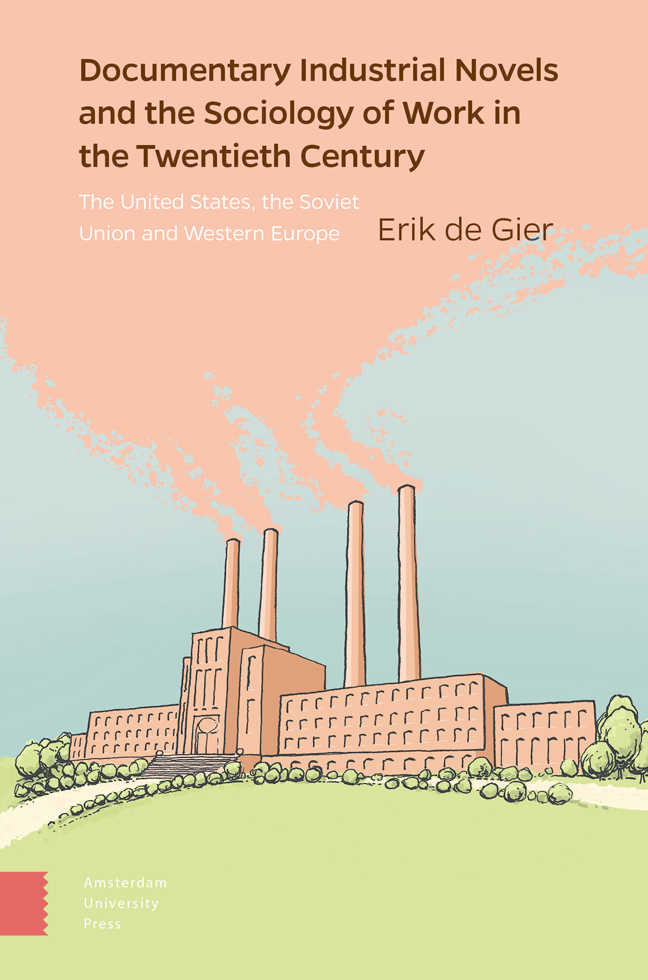 Documentary Industrial Novels and the Sociology of Work in the Twentieth Century
Documentary Industrial Novels and the Sociology of Work in the Twentieth Century Book contents
- Frontmatter
- Contents
- Acknowledgements
- Preface
- Note on sources
- 1 Bringing together the fields of sociology and literature: Towards an integration of Modernist industrial novels into industrial sociology
- 2 The rise of welfare work capitalism and the Americanization of production processes in the United States, Western Europe, and the Soviet Union
- 3 Between ‘utopia’ and ‘dystopia’: American 20th-century industrial novels
- 4 Socialist-realist industrial novels in the Leninist and Stalinist Soviet Union in the 1920s and 1930s
- 5 New Objectivity industrial novels in Weimar Germany
- 6 Neo-realist industrial novels in post-war Italy: The Olivetti case
- 7 Simone Weil and Modernist industrial novels in France
- 8 Transnational comparison and concluding reflection
- Bibliography
- Index
8 - Transnational comparison and concluding reflection
Published online by Cambridge University Press: 20 February 2024
- Frontmatter
- Contents
- Acknowledgements
- Preface
- Note on sources
- 1 Bringing together the fields of sociology and literature: Towards an integration of Modernist industrial novels into industrial sociology
- 2 The rise of welfare work capitalism and the Americanization of production processes in the United States, Western Europe, and the Soviet Union
- 3 Between ‘utopia’ and ‘dystopia’: American 20th-century industrial novels
- 4 Socialist-realist industrial novels in the Leninist and Stalinist Soviet Union in the 1920s and 1930s
- 5 New Objectivity industrial novels in Weimar Germany
- 6 Neo-realist industrial novels in post-war Italy: The Olivetti case
- 7 Simone Weil and Modernist industrial novels in France
- 8 Transnational comparison and concluding reflection
- Bibliography
- Index
Summary
Abstract
In this chapter the balance of this study of Modernist industrial novels and the sociology of work is drawn by making a transnational comparison of the five countries under regard in the American Century: the United States, the Soviet Union, Weimar Germany, post-war Italy, and France. A common thread in the cross-comparison is the introduction of modern American production techniques (Taylorism and Fordism) and their consequences for workers, first in the United States and then subsequently in somewhat adapted ways in the other four countries. The chapter ends with a reflective conclusion with respect to the application or use of Modernist industrial novels as a research source in the context of the sociology of work.
Keywords: Transnational comparison, American Century, Taylorism, Fordism, modernist industrial novels, industrial sociology
Introduction
In this chapter I will compare the five country cases described in this book. The main question is, can or do Modernist industrial novels written in different countries in various time periods (mostly between 1900 and the 1980s) spanning the so-called ‘American Century’, offer new or additional insights to academic industrial sociology? In other words, does it make sense to bring together the fields of literature and (industrial) sociology? When taking the dual transnational and longitudinal perspective, one development stands out that influenced both industrial sociology and Modernist industrial novels more or less equally. That is the Americanization of production processes by introducing scientific management and Fordist work methods, first in the United States and then in more or less adapted forms in the other countries. This implied a focus on the content of the modernist industrial novels dealt with, set in diverse national and time-specific contexts. Apart from that, the ways the underlying empirical research for the novels was carried out by its authors are also relevant, as too are the various ways the results are processed in these novels (See Table 1, Chapter 1).
Cross-country comparison
The flowering of the Modernist industrial novel covers more or less a century between 1900 and the 1980s. In the background of this long period there existed a successive tension in these novels between utopian and dystopian elements. In the first decades of the century utopian view prevailed, perhaps most importantly the shared belief – among entrepreneurs, managers, and workers – in the benefits of efficiency or the Americanization of production processes.
- Type
- Chapter
- Information
- Documentary Industrial Novels and the Sociology of Work in the Twentieth CenturyThe United States, the Soviet Union and Western Europe, pp. 161 - 170Publisher: Amsterdam University PressPrint publication year: 2023


